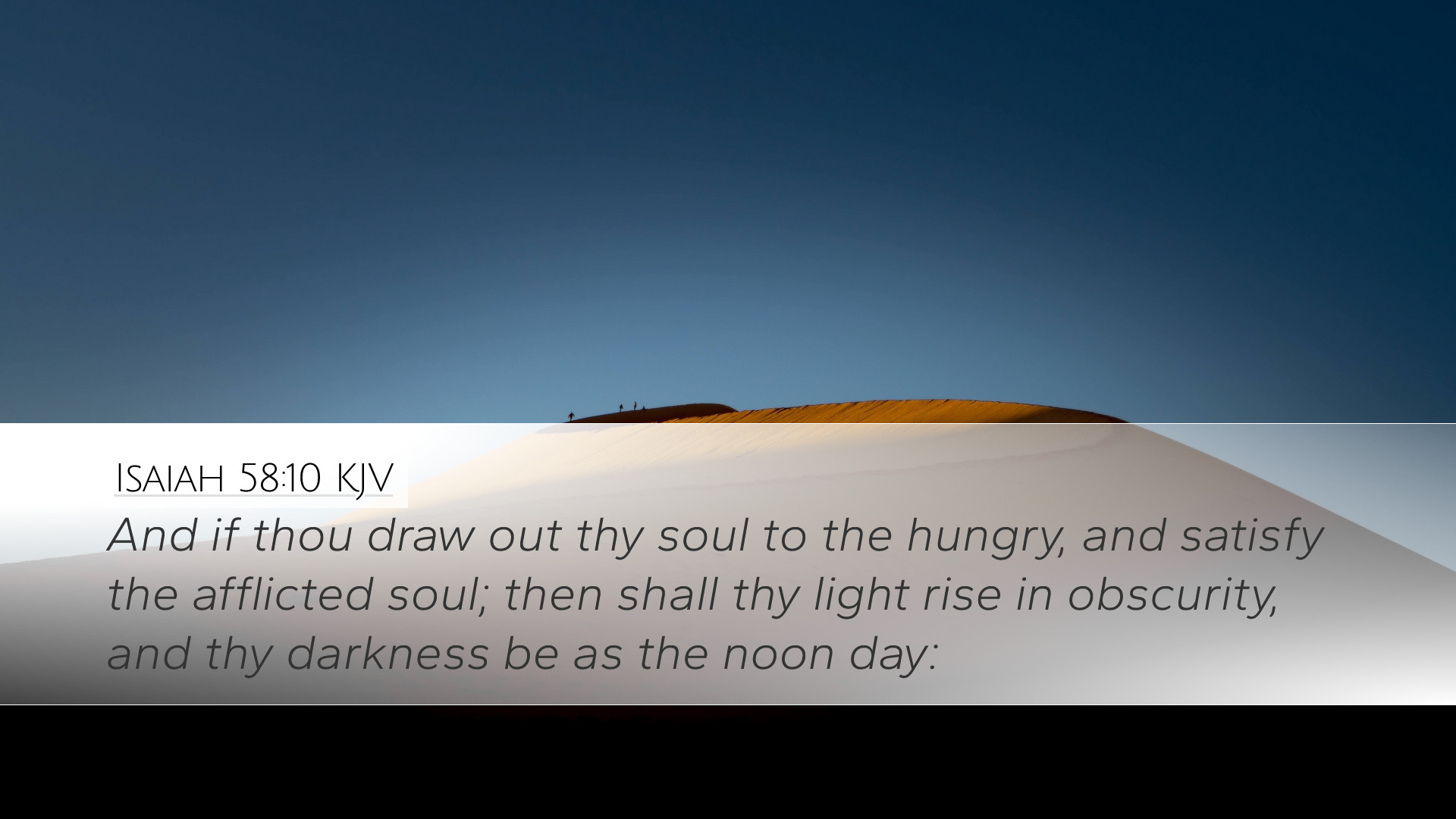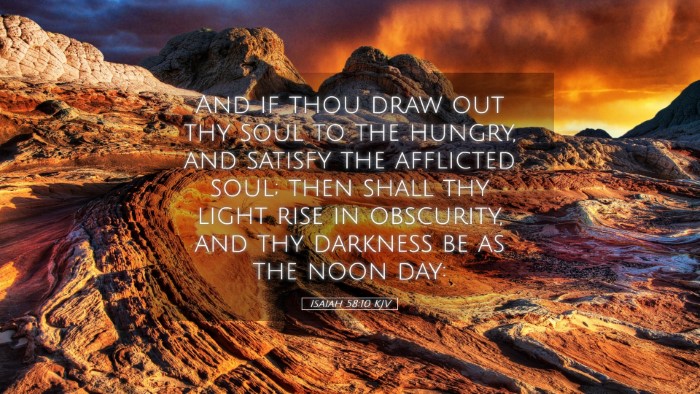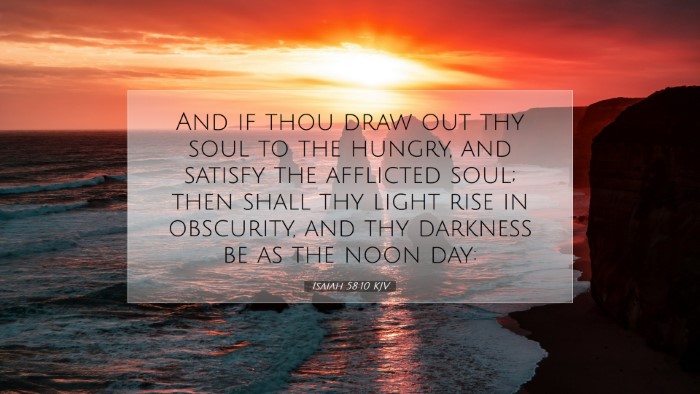Commentary on Isaiah 58:10
Isaiah 58:10 states: "And if you draw out your soul to the hungry, and satisfy the afflicted soul; then shall your light rise in obscurity, and your darkness be as the noon day." This verse carries profound implications for the nature of true worship and the social responsibilities of believers.
Contextual Overview
The context of Isaiah 58 is pivotal. The chapter begins with a divine rebuke of empty religious rituals. The Israelites were engaging in fasting and other forms of worship, yet their behavior towards others was neglectful and unjust. Isaiah challenges them, pointing out that authentic worship aligns with compassion and active service to others.
Exegesis
To understand the implications of Isaiah 58:10, it helps to consider various public domain commentaries:
Matthew Henry's Commentary
Henry emphasizes the sentiment of sacrificial love found in this verse. He notes that to "draw out your soul" signifies a deep, empathetic engagement with the plight of others. This is not mere charity; it is a call to sacrificial involvement. He draws attention to the benefits of this action: "your light will rise in obscurity." This suggests that genuine compassion can bring clarity and guidance, emerging from dark times as a beacon of hope. The metaphor of light is powerful, indicating divine approval and blessing upon those who serve the underprivileged.
Albert Barnes' Notes
Barnes provides a linguistic analysis of the phrase "draw out your soul." He notes that this phrase implies an intensive effort to alleviate the suffering of others. He explains that to "satisfy the afflicted soul" means to provide more than just physical needs; it also encompasses the emotional and spiritual support, which is essential in a holistic ministry approach. Furthermore, Barnes highlights that the promise of light rising from obscurity illustrates God’s providence for those who act justly and with mercy, suggesting that their actions will not go unnoticed by God, leading to both personal and communal transformation.
Adam Clarke's Commentary
Clarke offers a broader theological reflection on the morality of social justice present in this verse. He asserts that meeting the needs of the needy is an integral component of faith. Clarke suggests that the "light" referred to in the verse symbolizes spiritual enlightenment and guidance, which will follow acts of charity and righteousness. He expands on the contrast between "obscurity" and "noon day," indicating that those who dedicate themselves to the welfare of others will experience divine favor that elevates them from insignificance to significance within God's plan.
Theological Implications
The intersection of spirituality and social action is a recurring theme in Isaiah 58:10. This verse underscores the biblical principle that true piety is inextricably linked to social justice. Believers are called to engage actively in the lives of those who are marginalized, aligning their convictions with actions that result in real change.
Spiritual Light in Darkness
The promise of divine light emerging from a place of darkness serves as encouragement for those who faithfully serve others. This light represents not just personal salvation but also the collective hope of a community transformed by acts of compassion. The imagery of “noon day” implies a brightness that dispels all forms of oppression and despair.
Implications for Pastoral Ministry
Pastors and church leaders are reminded that ministry goes beyond preaching and teaching. Genuine pastoral care must address the holistic needs of congregants and the wider community, reflecting the heart of this verse. A church's engagement in social issues often serves as a testimony to its commitment to Christ’s teachings.
Conclusion
Isaiah 58:10 challenges believers to grasp the heart of God through community service, urging them toward actions that reflect their faith. The integration of spiritual worship with social action produces a transformative light that can guide others to a deeper understanding of divine love. Here, the message is clear: it is through drawing out our souls to the hungry and satisfying the afflicted that we find true spiritual illumination and purpose.


